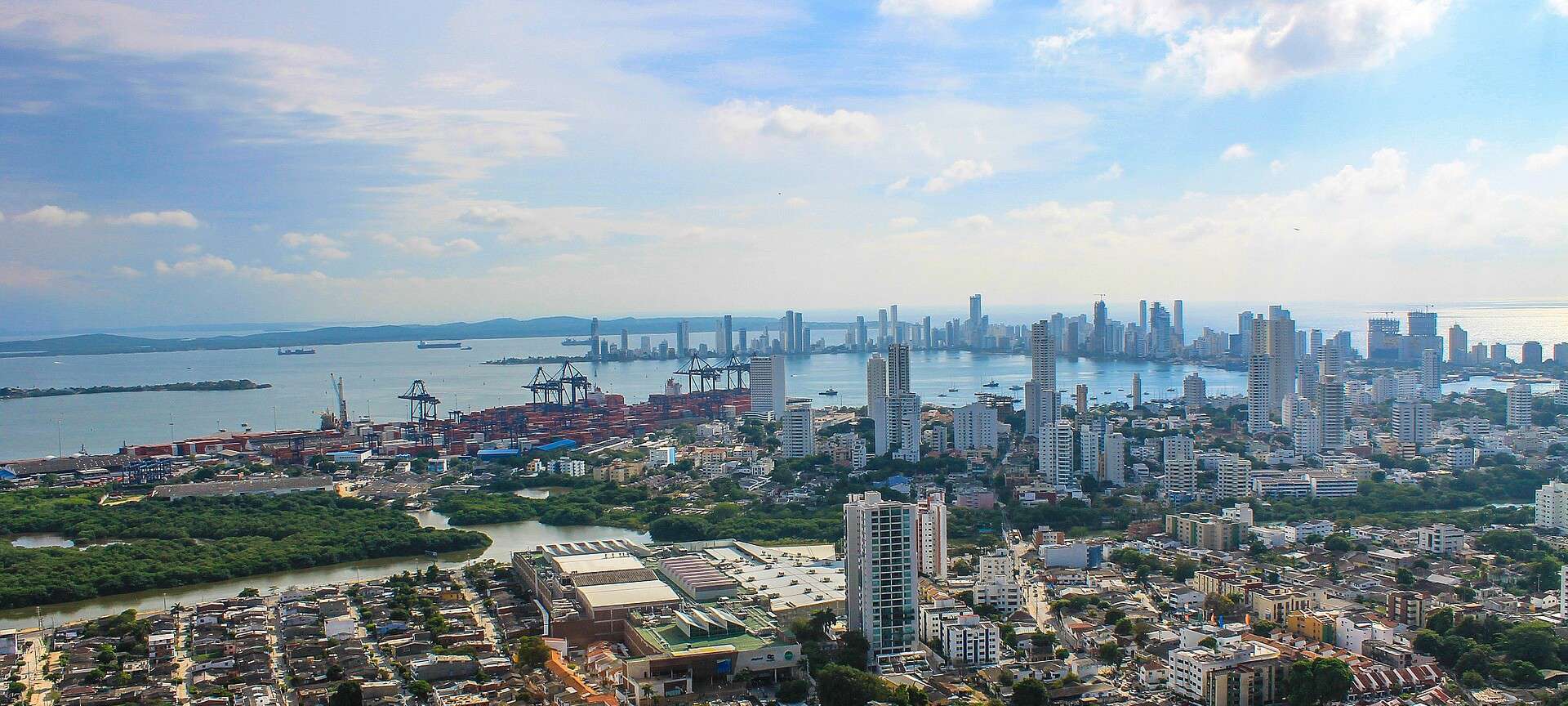Exporting to Barbados – the most eastern island – may be an ideal choice for companies seeking to enter the Caribbean market.
In spite of its small size, Barbados – a former British colony – is one of the Caribbean’s most populous and prosperous islands. Once heavily dependent on its sugar exports, tourism and finance are now its economy’s main drivers.
Barbadians generally enjoy a high quality of life and tourists flock to their world-renowned beaches – around 1.3m every year. That is more than three visitors for every resident!
Interested in finding out more? Here are the essentials you will need to know about exporting to Barbados.
Business opportunities to consider when exporting to Barbados
Exporters from the United States, Canada and Europe will find Barbados to be a very attractive market.
- First, the country’s economy is heavily dependent on imports, including 90% of its food.
- Second, its people have some purchasing power, with incomes among the highest in the eastern Caribbean.
- Additionally, exporters needn’t worry about a fluctuating exchange rate affecting their bottom line, as Barbados’s monetary policy has kept the rate at two Barbadian dollars to one U.S. dollar since 1975.
Barbados’ Free Trade Agreements
There are currently no free-trade agreements between Barbados and the USA or Canada. But this needn’t be a barrier, as North American products and services are consistently in high demand.
And if you already trade elsewhere in the Caribbean, Barbados should offer you some familiarity. It is one of 20 members of the Caribbean Community and Common Market (CARICOM) established in 1973 to reduce or remove restrictions on the movement of goods, services, labor, and capital throughout the region.
Through CARICOM, Barbados is also part of the EU-CARIFORUM Economic Partnership Agreement. This agreement gives the country full and free access to the markets of all the European Union members. Under the CARIFORUM-EU EPA, Barbados will also gradually open its markets to European exporters starting in 2023.
Barbados has signed a similar agreement with the U.K. following its exit from the European Union.
Key sectors for exports to Barbados
Tourism accounts for nearly a third (31%) of Barbados’s Gross Domestic Product (GDP) and supports one in three of the country’s jobs, according to The World Travel and Tourism Council. Therefore, it is no surprise that there are plenty of opportunities for exporters in hotel and tourism infrastructure construction and hotel and restaurant supplies.
Trade opportunities may also be found in the following areas:
- Renewable energy sources
- International financial services
- Information technology
- Global education services
- Health and cultural services.
- Agro-industry and agro-processing
- Energy, including renewables technology.
- Specialty agriculture and consumer products
Top exports to Barbados
The USA is Barbados’ largest trade partner. $753m worth of U.S. goods entered Barbados in 2021, and more than a sixth (15.4%) of Barbadian exports headed to the USA in 2020.
Unsurprisingly, Barbados also trades heavily with other Caribbean countries. Following the USA, Jamaica ranks second in Barbados’ exports, while Trinidad and Tobago ranks second in imports. A little further afield, other notable exporters to Barbados are Japan and the UK.
Fuels and machinery dominate the top of Barbados’s import list. Meanwhile, hard liquor, packaged medicaments, cement, and pesticides are the country’s most sought-after exports.
According to the United Nations COMTRADE database, compiled by Trading Economics, the top ten goods imported to Barbados in 2022 were:
- Refined and Crude Petroleum ($561.94M)
- Industrial Machinery ($167.73M)
- Electrical Equipment ($136.65M)
- Motor Vehicles & Parts ($91.91M)
- Plastics ($91.79M)
- Beverages and liquors ($54.45M)
- Paper ($49.33M)
- Articles made of iron and steel ($48.07m)
- Pharmaceuticals ($48.05M)
- Prepared Foods ($46.96M)
Challenges to consider when exporting to Barbados
To make informed decisions when entering new markets, you must also be aware of any potential challenges. Challenges when exporting to Barbados include:
- A small population of 280,000 limiting prospects in certain areas
- The legacy of COVID-19 – economic uncertainty, rising unemployment, and reduced spending power
- Tariffs remaining high, despite being lowered and simplified to meet World Trade Organization (WTO) obligations
- Government red tape and customs inefficiencies
- Limited digitization among many regulatory authorities delaying transactions
- The ineligibility of U.S. companies in submitting tenders for infrastructure projects funded by the Caribbean Development Bank (CBD), though there may be some exceptions
- Poor customer service, though this is being addressed
Import restrictions and prohibitions
There are a variety of prohibitions and restrictions on imports in Barbados – some are broad-brush, while others are product-specific.
Barbados fully prohibits the import of the following items:
- Counterfeit coins
- Food unfit for human consumption
- Indecent or obscene articles
- Infected cattle
- Prepared opium
- Fictitious stamps
- Toy guns
- Fresh fruits and vegetables grown in or conveyed from Florida, unless accompanied by a phytosanitary certificate
- Ozone-depleting substances (H.S. Ex 29.03)
There are also a number of restricted imports to Barbados, including:
- Arms and ammunition
- Cannabis and its derivatives
- Unbottled spirits and wines or those in containers of less than 9 gallons
- Tobacco, cigars, cigarettes, and cigarillos, unless in whole and complete packages
- Tobacco extracts and essences
- Goods bearing the Royal Arms of Great Britain
- Goods imported as ships or aircraft stores, unless for passengers and crew
- Ozone-depleting substances (H.S. Ex 29.03)
- Refrigerant blends (H.S. Ex 38.24)
We recommend that you consult a reputable customs broker to ensure that your product meets import criteria and that you have all the necessary documentation to support the importation process.

The deep water Port of Bridgetown, is Barbado’s key maritime trade and logistics hub.
Export to Barbados: Customs clearance
Those already conducting business in the Caribbean will notice that processes and tariffs have been harmonised. However, the tariff system may be confusing if it is your first foray into the Barbadian market.
Customs Duties
If you are planning to export to Barbados, there are several tariffs and levies to consider.
Barbados is a full member of the Caribbean Community (CARICOM) and therefore shares its Common External Tariff (CET) for goods.
Generally, import duties range from zero to 20%, but some are significantly higher. These include fruit and vegetables (40%), jewellery (60%), watches (50%), motor vehicles (45%), and t-shirts (115%)
While free trade agreements (CARICOM and EU-CARIFORUM) may result in zero import duties for certain goods exported to Barbados from member countries, non-tariff barriers such as additional trade charges and taxes may still apply. These include:
- 1% environmental levy – higher for motor vehicles, TVs, and refrigerators
- Container levy – 0.75% on the cost insurance and freight (CIF) value if you are exporting in containers not made of plastic, glass, metal, or paperboards
- Excise tax – 10% on sweetened drinks and a range between five and 60% for alcoholic beverages, tobacco products, motor vehicles, and petroleum products.
Import requirements and documentation
The documents required at customs in Barbados are generally standard issue and should throw up few surprises. They include:
- Airway bills or bills of lading, depending on the method of import
- CARICOM document invoice, though a commercial invoice is acceptable if all the required information is present
- The supplier’s invoice, including all items in the shipment
- The C-63 form, including the items shipped, weight, shipper, and tariff code
- Import licences, if necessary
Import licences are required for:
- Dairy products and meat – these require a stamp from Veterinary Services to show they’re from an approved source
- Fireworks and handcuffs – with a letter granting approval from the Prime Minister’s Office
- New, used, reconditioned vehicles – there are several requirements, including being right-hand drive, no older than four years old, and with a mileage reading under 50,000
- Vintage vehicles
- Jet skis/wave runners
In addition, there may be specific labelling requirements for goods you are importing. You can find out more from the Barbados National Standards Institution (BNSI).
For the latest customs advice and guidance, as well as information on duties and categorization of goods, visit the Barbados Electronic Trade System.
Modes of transportation to and within Barbados
When it comes to transportation infrastructure, Barbados is not standing still. Significant investments, expansions, and improvements can be seen across all modes.
Maritime Facilities
The Port of Bridgetown, located on the southwest coast of Barbados, is the island’s key maritime trade and logistics hub.
Its deep water harbour handles most of the country’s ocean-going trade: more than 850,000 tonnes and 1000 vessels (including cruise ships) in 2021.
The port of Bridgetown is always striving to improve its infrastructure and boost its competitiveness with other ports in the eastern Caribbean. It recently submitted an application for a new facility, including a 660m deep water berth and a 4.5-hectare bulk storage area.
The only other official entry point to Barbados by sea is the Port St Charles marina, a luxury development of apartments, condos, and yacht berths. It also hosts coastguard, police, immigration, and customs facilities operating on the offshore breakwater.
Airport infrastructure
Grantley Adams International Airport, also known as Bridgetown Airport, is a major transportation hub in the Eastern Caribbean, operating direct services to the USA, Canada, Central America, and Europe.
The island’s only airport has expanded significantly since the early 2000s, with a new cargo building among its developments. It welcomes around 2.3m passengers annually and handled nearly 10,000 tonnes of cargo in 2019.
Road network
Barbados has around 1,500km of highways. They are considered safe and generally in good condition, thanks to significant investment over the last 10 years.
Multi-million dollar projects continue to focus on connecting tourist, industrial, and business areas with Bridgetown Port and the airport and more rural areas with towns elsewhere on the island.
The road infrastructure continues to be improved and future-proofed in response to increasing car use, longer journey times, outdated and poorly maintained routes, and the threat of natural disasters.
Rail transport
With the exception of a newly opened heritage railway for recreational purposes, Barbados no longer has an operational rail network for freight or passengers.
Export to Barbados now!
Excited about the opportunities awaiting you in Barbados? Let Latin American Cargo help you on your way with stress-free shipping!
We are experts in freight forwarding and the markets we serve. We pride ourselves on tailoring our services to meet your needs.
Latin American Cargo is your specialist Barbados logistics partner. Get in touch today!


 LAC Team
LAC Team


